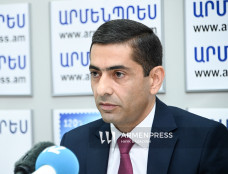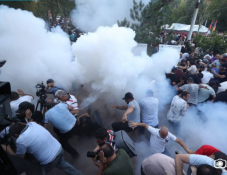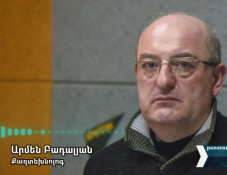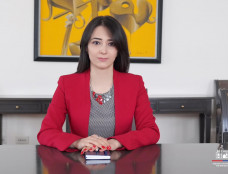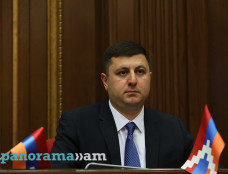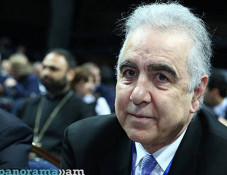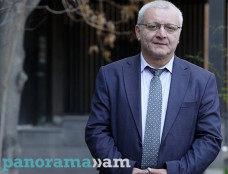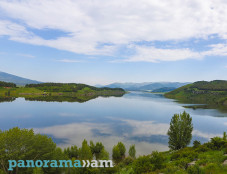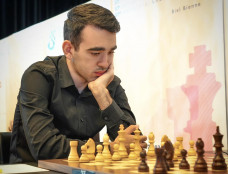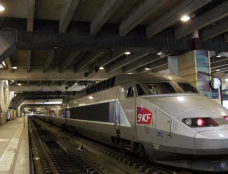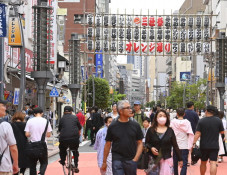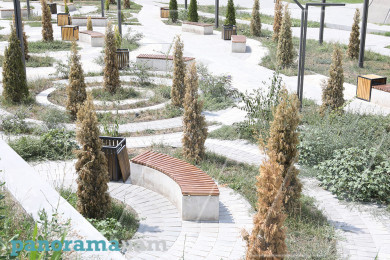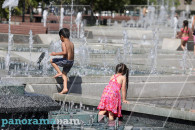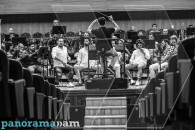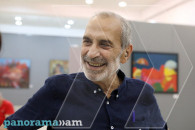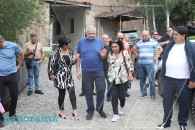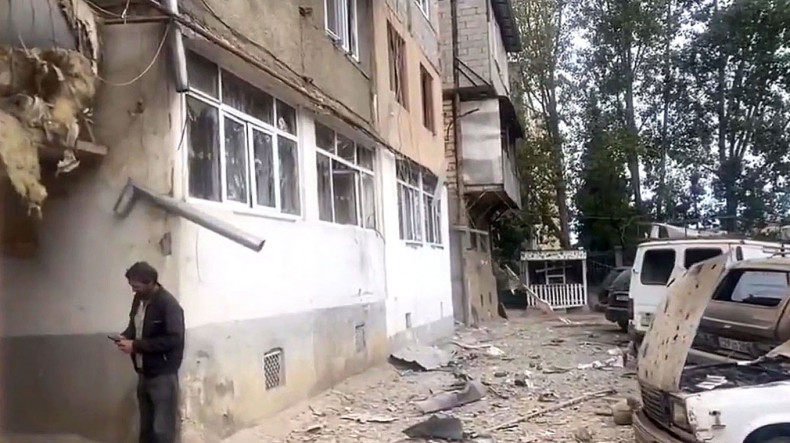
Opinion: War is returning to Nagorno-Karabakh because the world did nothing to stop it
By Hovhannes Nikoghosyan and Vahram Ter-Matevosyan
The the article was originally published on The Moscow Times.
Open conflict has once again broken out in Nagorno-Karabakh. On Tuesday, the Azerbaijani defense ministry announced the beginning of a new military campaign, indiscriminately shelling the capital Stepanakert and other settlements.
For the past few weeks, aerial images and videos have shown that Azerbaijan has been amassing troops along the borders of Nagorno-Karabakh and of Armenia itself. The upside-down letter “A” on Azerbaijani military vehicles — a copycat of the Russian military’s insignia in Ukraine — looks like a threat to cut through Southern Armenia and secure the land corridor into Nakhchivan and to Turkey, which President Ilham Aliyev has been demanding since the end of the 2020 war.
Many international organizations, including the International Committee of the Red Cross (ICRC), and foreign governments have condemned the dire humanitarian catastrophe in this breakaway region in the South Caucasus. Residents have been dying of malnutrition and shortages of medicine.
The ongoing blockade of Nagorno-Karabakh and its 120,000 inhabitants since December 2022, and regular ceasefire violations by Azerbaijan, prompted the former Prosecutor General of the International Criminal Court, Luis Moreno Ocampo, to call this a genocide under the UN’s 1948 Genocide Convention.
A closer look into the situation on the ground makes it clear there is neither room for peace, nor preventing a new war.
Backed by Turkey, Pakistan and Israel, Azerbaijan launched and won an unprovoked war in fall 2020, reclaiming around 10,000 square kilometers of Armenian-controlled territories in and around Nagorno-Karabakh. Since November 2020, the remaining 2,200 square kilometers have been patrolled by local self-defense forces and Russian peacekeepers who lack a broad international mandate and rules of engagement.
Regular skirmishes both on the Line of Contact in Nagorno-Karabakh and along the international border between Armenia and Azerbaijan have become a new normal. Since May 2021, the Armenian government has reported about 150 square kilometers of its internationally-recognized sovereign territory under Azerbaijani occupation.
Incursions by Azerbaijan have barely been held back by unarmed European observers (since October 2022) or Russian peacekeepers.
Since November 2020, the Azerbaijani government and various state-sponsored activists have spoken more systematically about the state of Armenia representing “Western Azerbaijan.” Repatriating Azerbaijani inhabitants of Armenia and questioning the legitimacy of the country’s existence has unofficially been part of Baku’s agenda for some time.
Now Armenia is warned against criticizing Azerbaijan’s xenophobic statements, which it uses for internal propaganda, in order to avoid jeopardising the chances of a peace agreement. Meanwhile Aliyev, encouraged by this idleness of external players, has occupied swaths of Armenian highlands on the border and keeps lowland residents under fire, often literally.
Following Armenia’s snap parliamentary elections in 2021, which saw the election of Prime Minister Nikol Pashinyan, the Armenian government started nurturing a new narrative about a “peace deal” with Azerbaijan. To meet one of Baku's key demands, Pashinyan has even publicly pronounced Nagorno-Karabakh part of Azerbaijan.
This backpedalling created an opportunity for both Russia, as well as the EU and U.S., to try to establish peace in the region. The Armenian leadership, most likely, acted under duress created by the threat of force by Azerbaijan.
The crux of the matter is that “sustainable peace” has become a euphemism for pushing a weakened Armenia to gradually denounce their national interests in the hope that Azerbaijan will stop its onslaught. Such calculus shows a lack of understanding of the historical grievances at play in the region. The global disorder of past years meant achieving peace was not a priority.
But there is more to it, often unspoken due to self-censorship and bothsidesism.
For 25 years following Azerbaijan’s defeat in 1994, first President Heydar Aliyev and then his son President Ilham Aliyev have placed anti-Armenian sentiment at the heart of their country’s national image. Children as young as kindergarten are being taught to see Armenians as the enemy. Despite this, the international community continues to court Baku.
Part of the reason why is that Aliyev has become adept at “caviar diplomacy”: an investigation by Organised Crime and Corruption Reporting project found he ran a slush-fund of $2.9 billion, with which he paid off hundreds of European, American and Russian politicians, media personalities and thought leaders.
This explains why Aliyev, being an experienced puppet-master, is ready to incur high risks and bear the costs of damage to his reputation. He knows he can get away with it.
Aliyev is trying to complete his nation-building project. Through policies and propaganda, him and his father created a vengeful nation for which the pain and suffering of Armenians is an article of faith.
Overinflating the sense of humiliation of the 1990s, the motivation for revenge has penetrated all aspects of social fabric. There are parallels with the myth of the humiliation of Russia by the West in the same decade.
Even if Nagorno-Karabakh is fully subordinated to Azerbaijan — a corrupt dictatorship — ethnic Armenians will most likely be persecuted as a result of decades-old and state-sponsored xenophobia against them. The Azerbaijani regime has no desire to overturn this policy, nor do the external players seem interested in using any leverage to end it.
Expecting Azerbaijan to back down because of diplomatic pressure is pointless. Even if the ICRC is successful in securing a durable commitment to the simultaneous opening of both the Lachin Corridor (which Azerbaijan blocked) and the road from Azerbaijan (to which Nagorno-Karabakh authorities object) — it will be yet another advance for Aliyev’s plan in subordinating Armenians.
Despite the world averting its eyes from the conflict between the two countries after November 2020, local residents and international observers know it never fully ended. Its dimensions and geography have merely been transformed.
Three years after that formal ceasefire, the Armenian military’s failure to regroup and resupply, and almost 18 months of Russia’s war in Ukraine, Azerbaijan is again looking to seize more of its maximalist demands. Most likely, these involve seizing control of a land passage through southern Armenia into its exclave of Nakhchivan and onward to its ally Turkey.
Turkey will support its minor partner Azerbaijan as a bargaining chip in relations with Russia. There are four other players with the capacity that could prevent a new war. But none of them used any of it.
They are Iran, Europe, the United States and Russia.
Iran has long been the only power which has unequivocally claimed that the region’s borders cannot be altered. It seems following a recent visit to Tehran by the Turkish foreign minister some assurances to this end have been sought and received, which will put Iran at bay.
The White House and State Department have put a lot of effort to bridge the divide between the parties diplomatically, but it seems Washington’s primary concern is geopolitical, not humanitarian: snatching Armenia from Russia’s embrace, without regard to the plight of Nagorno-Karabakh itself.
Europe has been divided on this matter. EU President Charles Michel has been trying, probably in his view, to pick the low-hanging fruit of securing a peace deal. But chronic misunderstanding of the regional dynamics and failure to adhere to any principled position have in fact further emboldened Aliyev.
This is not the result of Europe’sdependence on Azerbaijani gas. Europe’s unwillingness to engage meaningfully will lose it many supporters in Armenia.
At the end of the day, neither the EU nor the U.S. have skin in the game. The post-1990 arguments about the European and American rules-based order had given way to the global financial crisis and Covid. Furthermore, many politicians in both Brussels and Washington have strayed far from those ideals.
Russia remains the region’s traditional dealmaker — and dealbreaker. The Kremlin hasn’t stood idle in recent monthsdue to the distraction with Ukraine or the necessity to mobilize the economy in the face of Western sanctions. In fact, this inaction stems from competing interests and shattered decision-making mechanisms inside the Kremlin. For example, the commander of the Russian peacekeeping forces in Nagorno-Karabakh has been switched four times since 2020.
The Kremlin has only been reacting to Armenia's cozying up to the West . This has created a long list of grievances on both sides which prevents Moscow from being willing to stop a new war.
There are two ways to halt the humanitarian catastrophe in Nagorno-Karabakh and in Armenia and stifle the flames of the newly reignited conflict. Sadly, it is unlikely the international community will try either of them.
Firstly, the Azerbaijani economy and powerful individuals must be sanctioned for purported crimes both inside their country and against Armenians. Secondly, the international community should suspend the country’s membership of organizations like the Council of Europe and Organization for Security and Cooperation in Europe, as happened to Yugoslavia in the 1990s.
Of course, this can be better achieved by more active Armenian diplomacy. But its sloppiness does not grant other players an excuse to stand by doing nothing. The only language dictators understand and respect is force. Very few become more aggressive in the face of credible consequences. Otherwise, for both Russia and the West, this is another appeasement of another dictator before a bigger war.
Related news
- Fighting continues along Artsakh contact line
- Civilian settlements in Artsakh under heavy shelling – Foreign Ministry
- 25 killed, including 2 civilians, in Azerbaijani attack on Artsakh
- Artsakh says heavy fighting continues along entire contact line
Newsfeed
Videos





